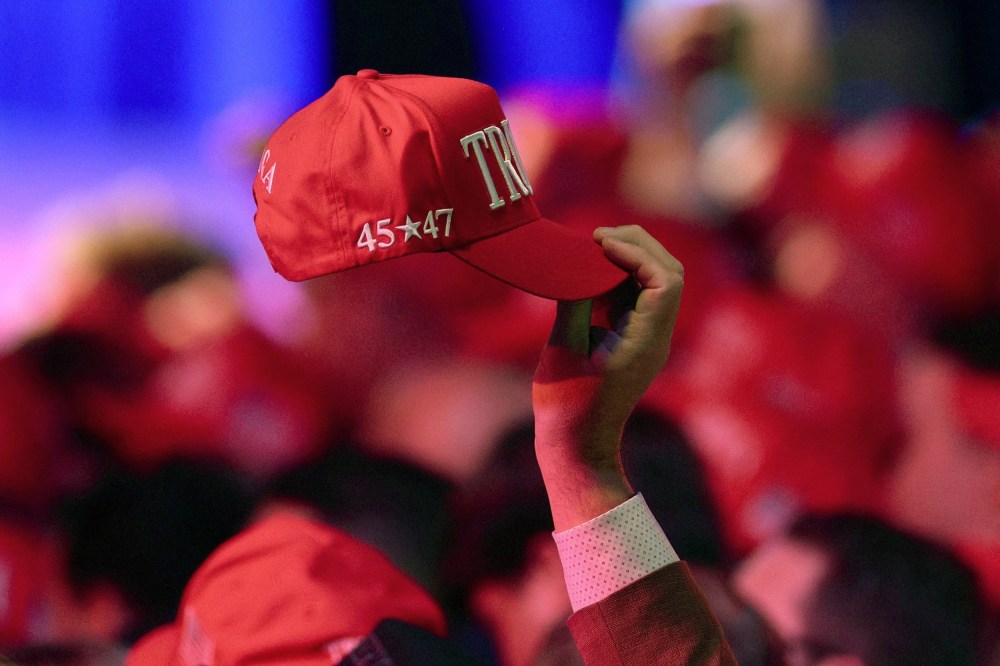It’s hard to know what feels worse: Trump’s shocking 2016 win, which came at the expense of a highly qualified woman whose path to the White House seemed preordained, or his 2024 victory, which in hindsight feels predictable. This time, the nation has already seen what a Trump presidency can do, from failing to react quickly to the Covid pandemic to behaving so egregiously he was impeached by the Senate (twice), to separating distraught children from their parents at the border, to blocking refugees based on their religion. Trump is one of the singularly worst presidents to ever occupy the Oval Office. And American voters just put him back in it.
One clue for how and why this happened, at least in part, may have come from conservative commentator Ryan Girdusky, who was banned from appearing on CNN after he hurled a racist quip at journalist Mehdi Hasan. Last Tuesday, Girdusky opined that the election would be a “middle finger” aimed at the “people who talk down to you.”
“This is the day you get to throw a human Molotov cocktail,” he told “Real America’s Voice News. “And his name is Donald Trump.”
And arsonists across the nation seem to have complied.
Ryan Girdusky says this election is a chance for "white men" to throw a "middle finger" at the "people who talk down to you" and "reclaim my country."
— Justin Baragona (@justinbaragona) November 5, 2024
"This is the day you get to throw a human Molotov cocktail, and his name is Donald Trump." pic.twitter.com/QpFBXSkNSA
Trump has now run three times as the candidate of rage and grievance. In 2020, enough voters were tired of the schtick. But after four years of a fairly innocuous Joe Biden administration, his appeal has somehow expanded. There are a lot of reasons voters tell pollsters that they back Trump: the economy, immigration, crime. But what if a good number of Trump’s fans are simply chaos voters? They may not feel horribly mistreated so much as they resent what they perceive as the better treatment accorded to people they don’t think deserve it. These voters wouldn’t be turned off by Trump’s aggression and his threats because his brash rhetoric is part of the appeal.
I’m obviously not describing every person who cast a ballot for the Trump-Vance ticket. But Trump’s four years in office were incredibly divisive and ugly. Unlike in 2016, those who put him back in office this week know what they’re getting. A large share of these voters do not seem to have been persuaded by appeals to American democratic traditions and the maintenance of democracy itself. Among voters who put “the state of democracy” as their top issue in this election, 80% voted for Vice President Kamala Harris, according to NBC’s exit polling. But Harris and Trump voters were also about equally likely to say that democracy was threatened: Nearly three-quarters of voters said as much, and their votes were divided almost evenly between Trump and Harris. These Trump voters, in other words, seem to believe that their candidate not only poses no real threat to democracy, but may be the man to protect it.
These Trump voters seem to believe that their candidate not only poses no real threat to democracy, but may be the man to protect it.
It’s important to also remember that autocrats are not always installed against the will of the people. Many initially win popular elections, and then use their power to undo democratic norms (see, for example, Vladimir Putin in Russia, Recep Erdoğan in Turkey, Viktor Orbán in Hungary, and Hugo Chávez in Venezuela, among others). And many autocrats enjoy widespread support, at least for a while. Both Italy’s Benito Mussolini and Spain’s Francisco Franco were initially popular figures, and Franco remains admired by many right-wing Spaniards.
Formal democratic systems that prioritize fairness, power-sharing and compromise — that protect the rights of minorities and the vulnerable — are relatively new in the sweep of human history and are often fairly unpopular. Democracy, and the compromise and power-sharing it requires, is hard — something Harris supporters are no doubt feeling today.
So while I believe Harris was right, like presidents Joe Biden and Bill Clinton before her, to emphasize the threat that Trump posed to democracy, his promise to break the system in favor of his favored groups is part of his popularity. A lack of election integrity, Trump and his fans argued, was the real threat to democracy, and they insisted that America’s electoral system was fatally flawed. Notice now, the silence from these same conservatives.












